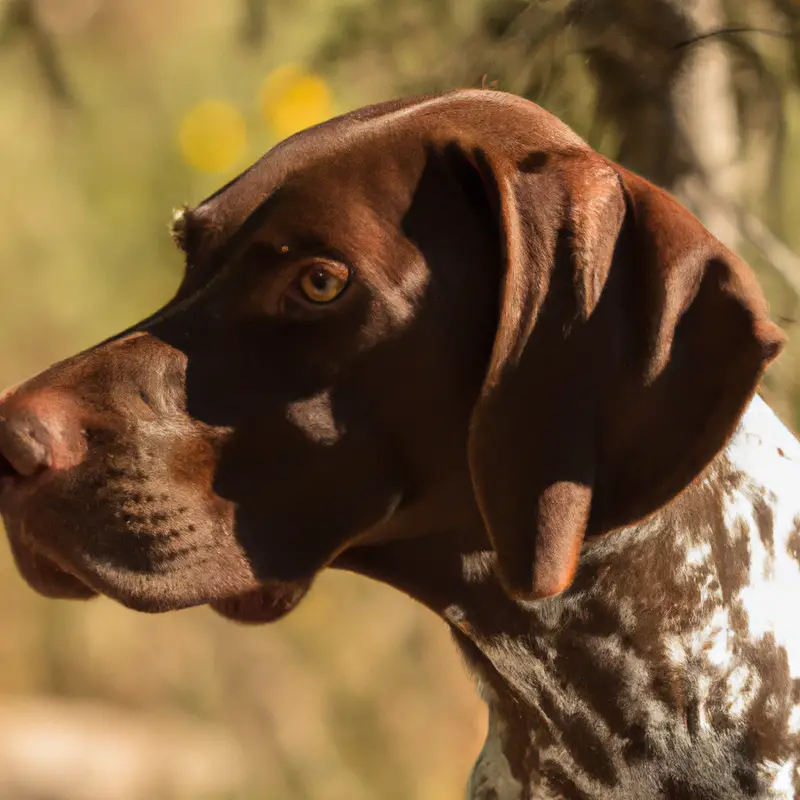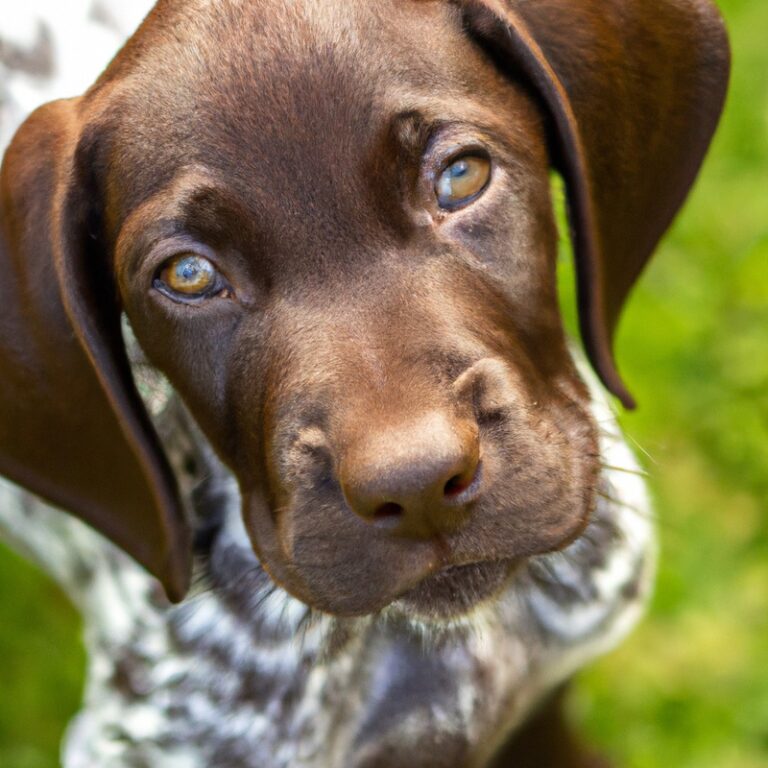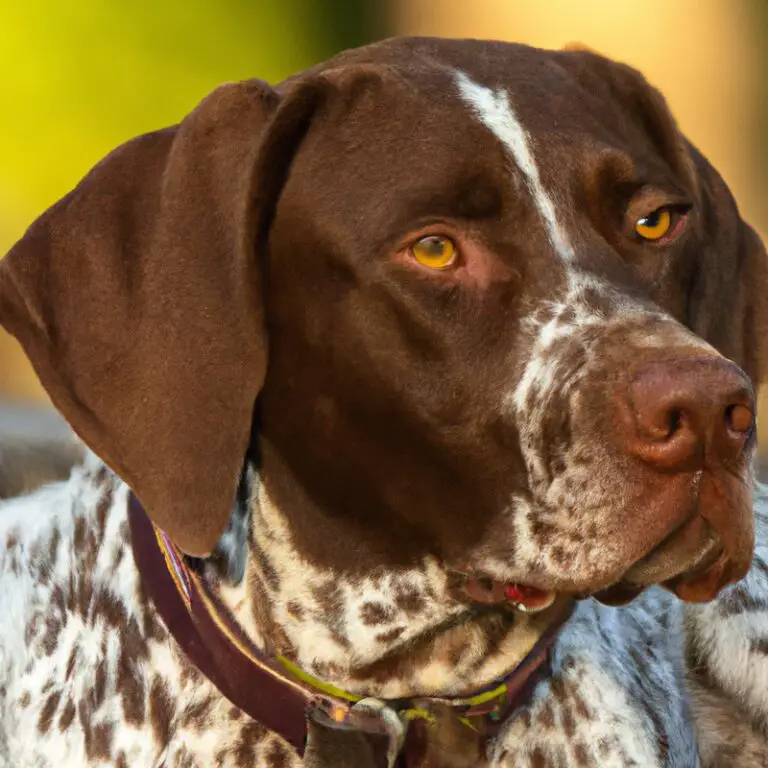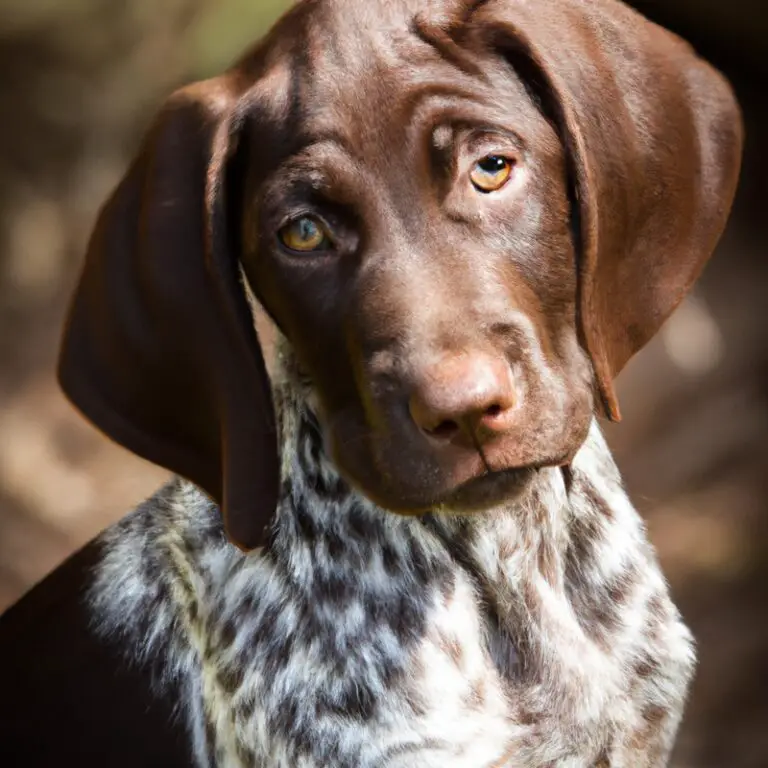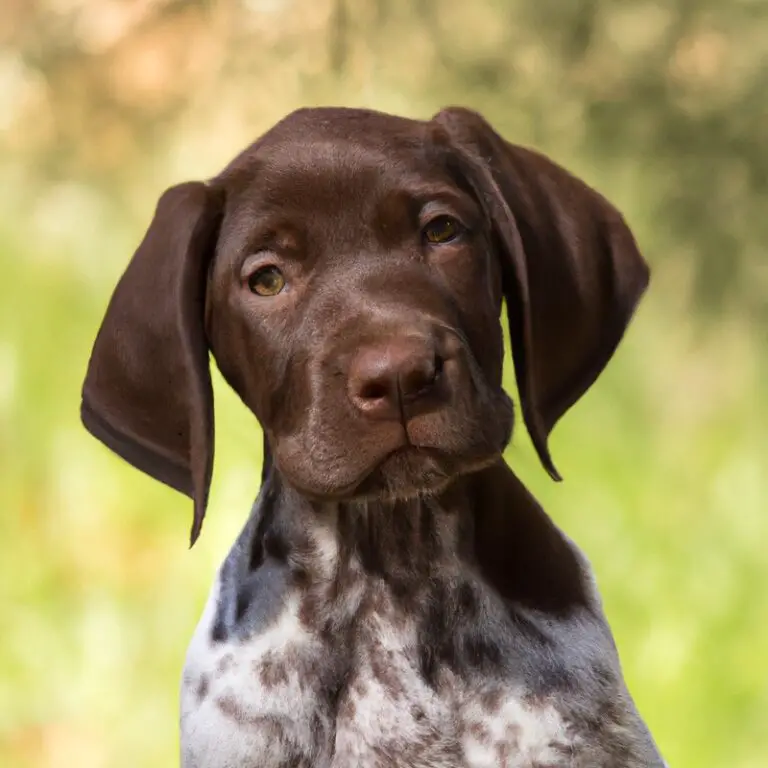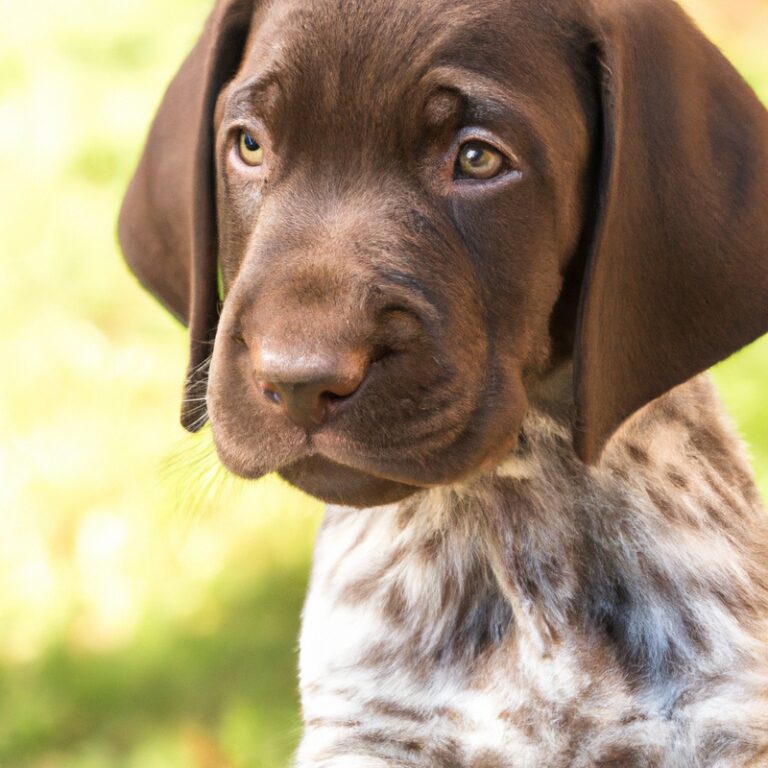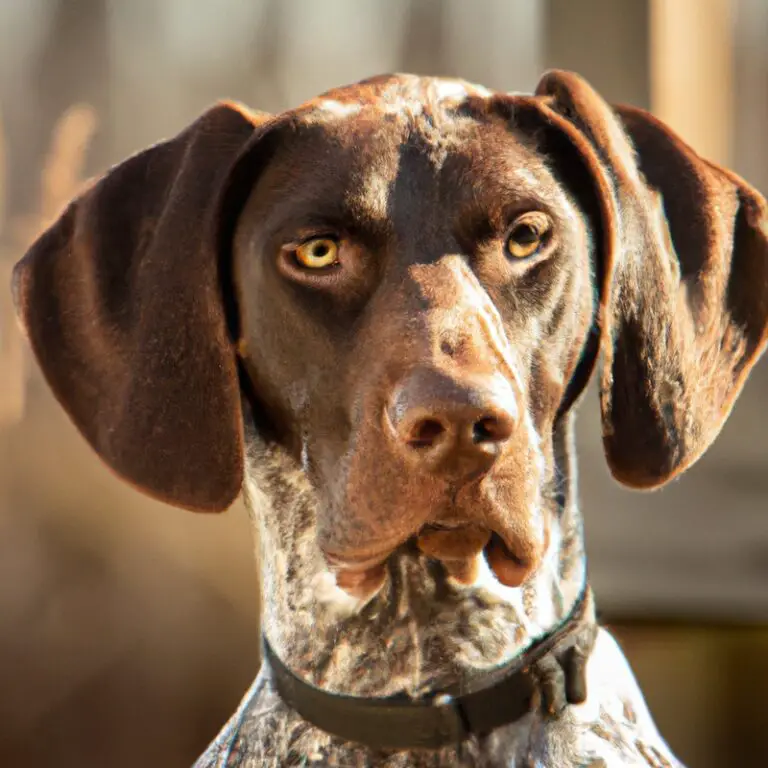What Are The Key Considerations When Adopting a German Shorthaired Pointer From a Rescue?
Key Takeaways:
- Understand the breed: Before adopting a German Shorthaired Pointer from a rescue, educate yourself about their temperament, exercise needs, and grooming requirements.
- Assess your lifestyle: Consider if your lifestyle aligns with the high-energy nature of German Shorthaired Pointers. They need regular mental and physical stimulation, so be prepared for an active lifestyle and plenty of exercise.
- Evaluate compatibility: Ensure that your home environment, including other pets and family members, is compatible with a German Shorthaired Pointer’s needs. They can be demanding and may not thrive in certain living situations.
- Support and training: Be prepared to invest time and effort in training and socializing your German Shorthaired Pointer, as rescue dogs may have specific behavioral needs. Seek professional help if necessary to ensure a successful adoption experience.
Are you considering adopting a German Shorthaired Pointer from a rescue organization? Well, let me tell you, you’ve made an excellent choice! These energetic and loyal dogs can bring so much joy and companionship into your life.
But before you take the leap, it’s essential to understand the key considerations involved in rescuing a German Shorthaired Pointer.
From researching reputable rescue organizations to preparing your home and assessing the dog’s needs, there’s a lot to think about. Don’t worry, though, because I’ve got you covered.
In this article, I’ll walk you through everything you need to know to ensure a successful and fulfilling adoption journey.
So, let’s dive in and get your paws on the best tips and advice for welcoming a German Shorthaired Pointer into your home!
| Consideration | Description |
|---|---|
| 1. Experience and Commitment | Adopters should have experience with active dog breeds and be committed to providing the necessary time, attention, and exercise for a German Shorthaired Pointer (GSP). |
| 2. Behavioral Assessment | A thorough behavioral assessment should be conducted to understand the dog’s history, temperament, and any potential behavioral issues. |
| 3. Home Environment | A GSP needs a spacious, securely fenced yard and a safe indoor environment. Assess if the adopter’s home meets these requirements. |
| 4. Exercise and Mental Stimulation | GSPs require regular exercise and mental stimulation. Potential adopters should be prepared to provide daily walks, runs, and activities. |
| 5. Training and Socialization | Adopters must be willing to commit to ongoing training and socialization to ensure the GSP becomes a well-rounded and well-behaved companion. |
| 6. Time and Availability | Consider if the adopter has enough time and availability to provide the necessary care, exercise, and attention a GSP requires. |
| 7. Financial Responsibility | Adopting a GSP comes with financial responsibilities, including veterinary care, grooming, food, toys, and other necessary supplies. |
| 8. Family Dynamics | Assess if the adopter’s family dynamics, including children and other pets, are compatible with a GSP and if everyone is on board with the adoption. |
| 9. Breed Knowledge | It is important that the adopter has a good understanding of the GSP breed, including their energy levels, hunting instincts, and specific care needs. |
| 10. Adoption Process | Follow the rescue organization’s adoption process, which may include an application, interview, home visit, and adoption fee. |
Understanding the German Shorthaired Pointer breed
History and origin of the German Shorthaired Pointer
The German Shorthaired Pointer has a rich history that dates back to the 19th century in Germany. This versatile breed was developed by crossing various hunting dogs, including Spanish Pointers, Bloodhounds, and other German hunting breeds.
The goal was to create a dog that excelled in both tracking and retrieving game, as well as being a loyal and affectionate companion.
Over time, the German Shorthaired Pointer gained recognition not only for its hunting abilities but also for its intelligence, athleticism, and adaptability. Today, it is a beloved breed that is cherished for its versatility and exceptional hunting skills.
Physical characteristics and temperament of the German Shorthaired Pointer
The German Shorthaired Pointer is a medium-sized breed with a lean and athletic build. They have a short, dense coat that is easy to maintain.
Their most distinctive feature is their strong and noble-looking head with a prominent muzzle and intelligent, expressive eyes.
In terms of temperament, German Shorthaired Pointers are known for their high energy and enthusiasm. They are intelligent, eager to please, and have a strong desire to work.
They are friendly and affectionate with their families, including children, and get along well with other pets when properly socialized.
Their hunting background makes them excellent trackers and retrievers, and they have a natural instinct to point and locate game. Their energy and intelligence make them highly trainable, but they also require plenty of mental and physical exercise to prevent boredom or destructive behavior.
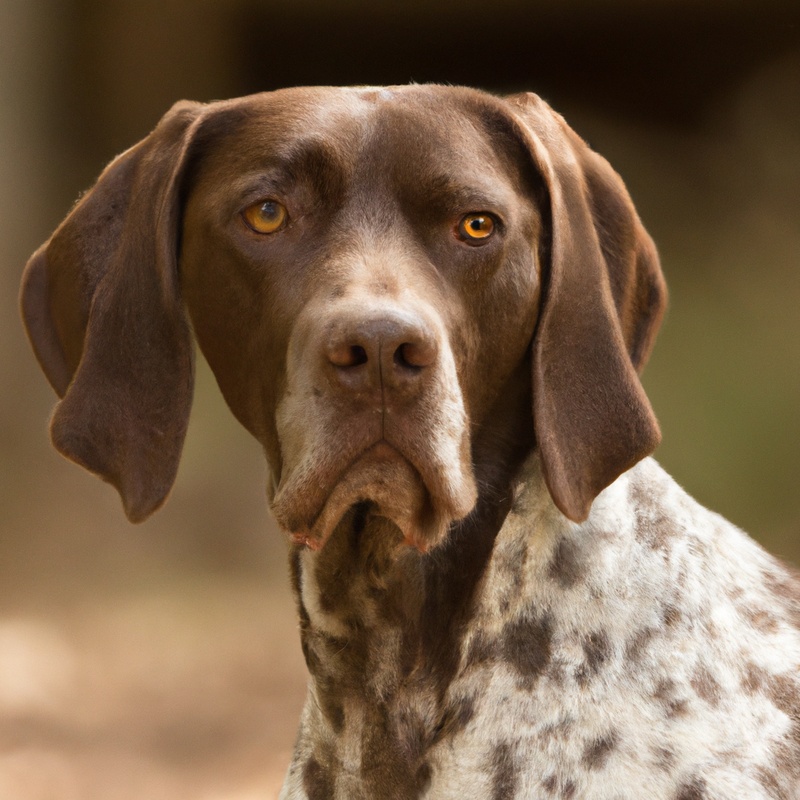
Exercise and grooming requirements of the German Shorthaired Pointer
When it comes to exercise and grooming, German Shorthaired Pointers have some specific needs. First and foremost, they are a highly active breed that requires plenty of exercise to stay happy and healthy.
Daily walks, runs, or vigorous play sessions are a must to keep them physically and mentally stimulated.
Regular grooming is also important for German Shorthaired Pointers. They have a short, dense coat that sheds moderately.
Brushing their coat once or twice a week will help keep it looking neat and remove any loose hairs.
Bathing can be done as needed, but be sure to use a dog-specific shampoo to avoid irritating their skin. In addition to grooming, don’t forget to check their ears regularly and clean them if needed to prevent any infections.
Also, trim their nails regularly to keep them from becoming too long and causing discomfort.
Researching rescue organizations
Importance of finding a reputable rescue organization
When adopting a German Shorthaired Pointer from a rescue, one of the most important factors to consider is finding a reputable rescue organization. A reputable rescue organization is crucial because it ensures that the dogs in their care are being treated well and are in good health.
By finding a reputable rescue organization, you can have confidence that the dog you are adopting has received proper care, vaccinations, and any necessary medical treatment.
Plus, reputable organizations typically conduct thorough assessments of each dog’s temperament and behavior to ensure compatibility with potential adopters. Taking the time to research and choose a reputable rescue organization is the best way to ensure a positive and successful adoption process.
Tips for researching and evaluating rescue organizations
When you’re considering adopting a German Shorthaired Pointer from a rescue organization, it’s essential to do your research and evaluate the organizations you come across. Here are some tips to help you in your search:
- Start with online research: Look for rescue organizations that specialize in German Shorthaired Pointers and have a good reputation. Read reviews and testimonials from adopters to get an idea of their experiences with the organization.
- Check their website: A well-maintained website with detailed information about the organization’s mission, adoption process, and available dogs is a positive sign. Look for transparency and clear communication.
- Ask for recommendations: Reach out to local dog owners, trainers, or veterinarians for recommendations on reputable rescue organizations. Personal recommendations can provide valuable insights into an organization’s reliability and dedication to the dogs they rescue.
- Evaluate their adoption process: A responsible rescue organization will have a thorough adoption process that includes application forms, interviews, home visits, and reference checks. This indicates that they prioritize finding the right homes for their dogs.
- Inquire about vetting procedures: A reputable rescue organization will provide veterinary care to their dogs, including vaccinations, spaying or neutering, and health checks. Ask about their protocols and ensure they prioritize the health and well-being of the dogs.
Questions to ask when contacting a rescue organization
When you’re reaching out to a rescue organization about adopting a German Shorthaired Pointer, there are a few important questions you should ask to gather the necessary information. First off, be sure to ask about the dog’s background: How did they end up in the rescue?
Do they have any known medical conditions or behavioral issues?
Next, find out about the organization’s adoption process: What are the requirements and fees? Will they provide any support or guidance during the transition period?
Lastly, inquire about the dog’s history: What kind of training have they received?
Have they been socialized with other animals and people? Asking these questions will help you make an informed decision and ensure a successful adoption.
Preparing for adoption
Assessing your lifestyle and compatibility with the German Shorthaired Pointer
Assessing your lifestyle and compatibility with the German Shorthaired Pointer is a crucial aspect before adopting one from a rescue. First and foremost, consider your activity level.
These dogs are highly energetic and require ample exercise.
If you lead an active lifestyle with plenty of time for walks, runs, and outdoor activities, you might be a good match. However, if you have a more sedentary lifestyle, this breed may not be the best fit.
Additionally, think about the time and attention you can dedicate to a German Shorthaired Pointer.
They are social dogs that thrive on human companionship. If you have a busy schedule or are away from home for long periods, it may not be fair to adopt this breed.
They can become bored, anxious, and prone to destructive behavior if left alone for too long.
Another important factor to consider is your living situation. German Shorthaired Pointers require ample space to explore and play.
If you live in a small apartment with limited outdoor access, it may not be suitable for this breed.
They do best in homes with secure yards where they can exercise and burn off their energy. Lastly, think about your experience with dogs and training.
German Shorthaired Pointers are intelligent and trainable, but they also have a strong prey drive and can be independent thinkers.
Patience, consistency, and positive reinforcement training methods are essential to their success. Assessing your lifestyle and compatibility with a German Shorthaired Pointer will ensure a harmonious and fulfilling relationship for both you and your new furry friend.
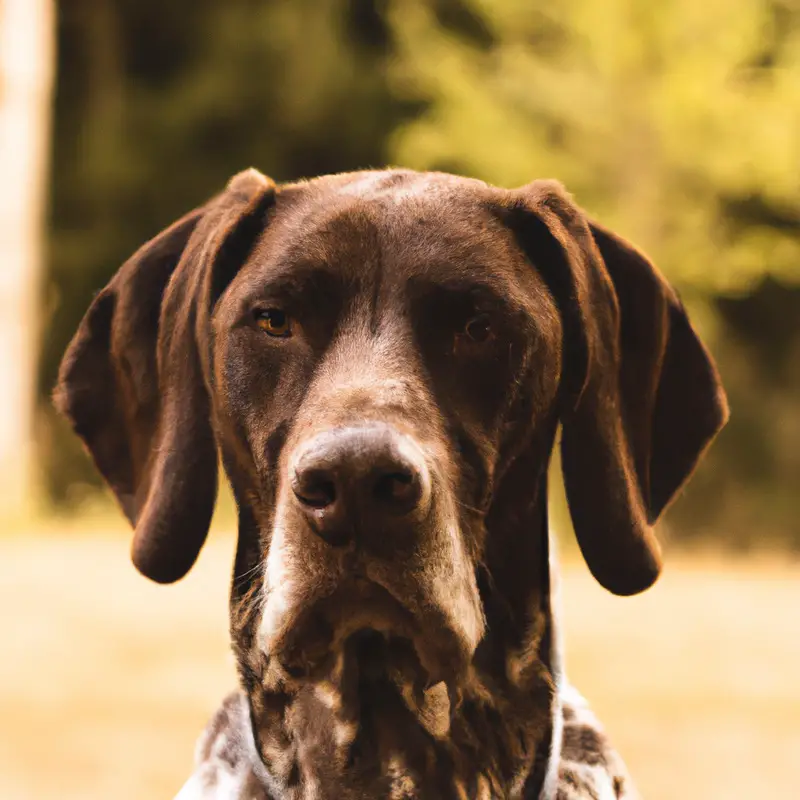
Understanding the adoption process and requirements
Understanding the adoption process and requirements is essential when considering adopting a German Shorthaired Pointer from a rescue. The first step is to gather information about the specific rescue organization you are interested in.
Find out their policies, processes, and requirements for adoption.
This could include filling out an application, providing references, and potentially undergoing a home visit. Next, ensure that you meet the basic requirements set by the rescue.
This typically includes having a stable living situation, sufficient time to dedicate to the dog’s exercise and training needs, and the financial ability to provide proper care.
In addition, be prepared for a thorough screening process. Rescues often prioritize the well-being of their animals and want to find the best match for each dog.
This may involve interviews, questionnaires, and conversations with the rescue representatives.
Lastly, understand that adoption fees are common and vary depending on the rescue. These fees help cover the costs of veterinary care, training, and shelter expenses.
It’s important to be financially prepared for this commitment.
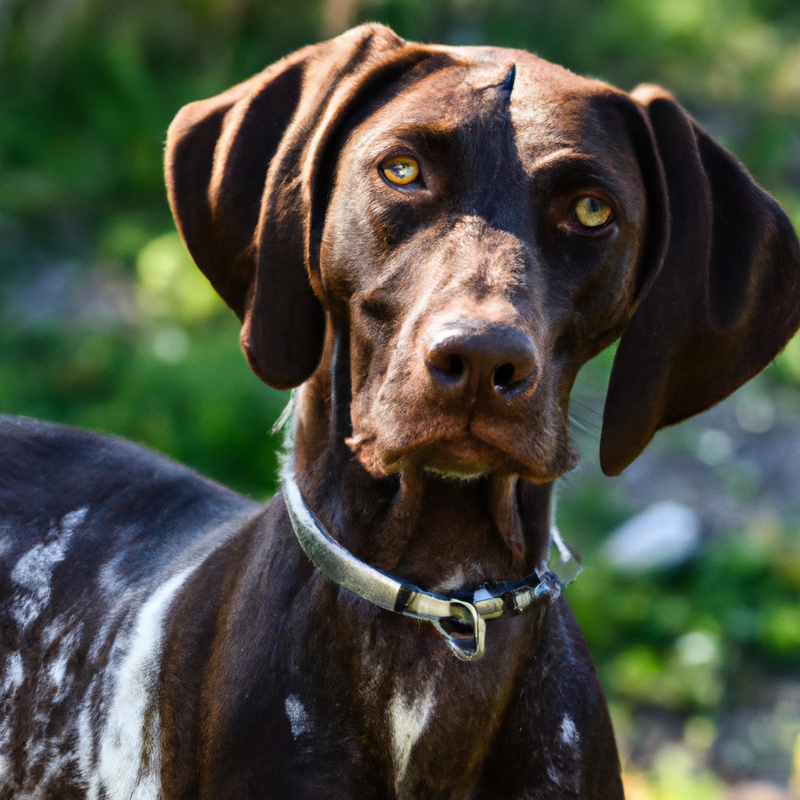
Creating a safe and welcoming home environment for your new pet
Creating a safe and welcoming home environment for your new German Shorthaired Pointer is crucial. Here are some key considerations:
- First and foremost, secure your home. Make sure there are no escape routes or hazards like open gates or broken fences. German Shorthaired Pointers are known to be active and curious, so it’s important to have a secure perimeter.
- Provide a comfortable space for your dog to relax. Set up a cozy bed or crate in a quiet area of your home where they can retreat to when they need some alone time.
- German Shorthaired Pointers love to explore, so ensure your home is dog-proofed. Remove any toxic plants, chemicals, or small objects that could be swallowed.
- Incorporate plenty of mental and physical stimulation. These dogs have high energy levels, so make sure you have ample time for regular exercise and play. Puzzle toys and interactive games can also keep their minds sharp.
- Developing a routine and consistent rules will help your dog feel secure and understand expectations. This includes potty-training, meal times, and designated play areas.
- Lastly, provide lots of love, patience, and positive reinforcement. German Shorthaired Pointers thrive on human companionship and will respond well to gentle encouragement.
By implementing these considerations, you can create a safe and welcoming environment that will help your German Shorthaired Pointer settle into their new home with ease.
Assessing the dog’s background and needs
Gathering information about the dog’s history and past experiences
Gathering information about the dog’s history and past experiences is an important step when adopting a German Shorthaired Pointer from a rescue. By understanding the dog’s background, you can assess their needs and potential challenges that may arise.
Ask the rescue organization or previous owner about the dog’s age, previous living conditions, medical history, and any behavioral issues or training received.
Knowing this information will help you create a suitable environment and prepare for any possible adjustments needed. It’s also beneficial to spend time observing and interacting with the dog to gain insight into their personality and temperament.
Understanding any medical or behavioral issues the dog may have
Understanding any medical or behavioral issues the dog may have is essential when adopting a German Shorthaired Pointer from a rescue. First and foremost, it’s crucial to review the dog’s medical records.
This will give you insights into any pre-existing conditions, ongoing treatments, or necessary medications.
It’s important to be aware of any potential health concerns so you can provide the appropriate care and make informed decisions about their well-being. Additionally, take the time to observe the dog’s behavior during your interactions.
Notice any signs of fear, aggression, or anxiety.
Understanding their behavioral issues beforehand will help you address their needs and create a suitable environment for them to thrive in. Consulting with a professional dog trainer or behaviorist can provide valuable guidance and support in managing any behavioral challenges.
Evaluating the dog’s compatibility with your family and existing pets
Evaluating the dog’s compatibility with your family and existing pets is crucial when considering adopting a German Shorthaired Pointer from a rescue. First and foremost, think about your family dynamics.
Consider the age of your children and their ability to handle and interact with a potentially high-energy dog.
Additionally, assess your family’s lifestyle and activity level to ensure it matches the needs of a German Shorthaired Pointer. When it comes to existing pets, introducing a new dog can be a delicate process.
Take into account the personalities and temperaments of your current pets.
It’s important to gradually introduce them in a controlled and supervised manner. Look for signs of compatibility, such as shared play styles and relaxed body language.
Training and socialization
Importance of training and socializing a rescue dog
When you adopt a rescue dog, training and socialization are key factors to consider. These aspects are crucial in helping your new furry friend adjust to their new home and become a well-behaved member of your family.
Training provides your rescue dog with structure and boundaries, helping them understand what is expected of them.
It also helps prevent and address any behavioral issues that may arise. By incorporating positive reinforcement techniques and consistency, you can help your dog learn commands and behaviors that make them easier to manage and enhance their overall well-being.
Socialization is equally important for a rescue dog.
It helps them build confidence and adapt to different environments, people, and other animals. By exposing your dog to new experiences in a controlled and positive manner, you can help them overcome any fears or anxieties they may have.
Identifying and addressing behavioral issues
Identifying and addressing behavioral issues is an important aspect to consider when adopting a German Shorthaired Pointer from a rescue. These dogs may have experienced trauma or neglect, which can affect their behavior.
To identify behavioral issues, it’s crucial to observe your new pet’s body language, reactions, and any unusual behaviors.
Common behavioral issues may include fearfulness, aggression, separation anxiety, or resource guarding. Once identified, it’s important to address these issues with patience, consistency, and positive reinforcement training.
Seek guidance from a professional dog trainer or behaviorist who has experience working with rescue dogs to ensure the best outcome for your furry friend.
Resources and tips for training and socializing your German Shorthaired Pointer
Training and socializing your German Shorthaired Pointer requires the right resources and tips to ensure their well-being. Here are some suggestions to help you with this process:
- Enroll in obedience classes: Training classes provide a structured environment for your dog to learn basic commands and manners. It also allows for socialization with other dogs and people.
- Provide mental stimulation: German Shorthaired Pointers are intelligent dogs that require mental challenges to prevent boredom. Use puzzle toys, interactive games, and obedience exercises to keep their minds stimulated.
- Regular exercise: These dogs have high energy levels and need plenty of exercise to stay happy and healthy. Engage in activities like daily walks, runs, hikes, or play sessions to keep them physically active.
- Positive reinforcement: Use positive reinforcement techniques like treats, praise, and playtime to reward good behavior. This encourages your dog to repeat desirable actions and strengthens the bond between you.
- Socialization: Introduce your German Shorthaired Pointer to different people, animals, and environments from the early stages. This helps prevent fear, anxiety, and aggression issues in the future.
- Consistency and patience: Training takes time and effort. Be consistent in your commands, routines, and expectations. Remember to be patient and understanding while working with your German Shorthaired Pointer.
- Seek professional help if needed: If you are having difficulty with training or socialization, don’t hesitate to consult a professional dog trainer or behaviorist. They can provide expert guidance tailored to your specific situation.
Building a bond and providing proper care
Establishing trust and bonding with your adopted German Shorthaired Pointer
Establishing trust and bonding with your adopted German Shorthaired Pointer is key. First and foremost, give your new furry friend some space and time to adjust to their new surroundings.
It’s important not to overwhelm them initially.
Talk to them in a calm and soothing voice, allowing them to come to you at their own pace. Avoid quick movements or loud noises that might startle them.
Spend quality time together by engaging in activities like walking, playing, and training.
This will help you build a connection and establish trust. Consistency is crucial.
Stick to a routine and provide them with a safe and comfortable environment.
Meeting the dog’s physical and emotional needs
Meeting the dog’s physical and emotional needs is crucial when adopting a German Shorthaired Pointer from a rescue. First and foremost, ensure that your new furry friend has a balanced and nutritious diet that meets their specific needs.
This includes providing them with high-quality food and fresh water, as well as monitoring their weight and adjusting their portion sizes accordingly.
Exercise is another important aspect of meeting a GSP’s physical needs. These active and energetic dogs require regular exercise to keep them physically fit and mentally stimulated.
Aim for daily walks, runs, or play sessions to keep them happy and healthy.
Providing them with plenty of mental enrichment through interactive toys, puzzle feeders, and training sessions is also beneficial. Don’t forget about the emotional needs of your GSP.
Give them plenty of love, attention, and socialization opportunities.
GSPs are known to be affectionate and loyal, so bonding with them is crucial. Spend quality time with them, engage in positive reinforcement-based training, and provide opportunities for social interaction with other dogs and humans.
Lastly, regular veterinary care is essential to ensure your GSP’s overall health and well-being.
Schedule regular check-ups, vaccinations, and necessary preventive treatments to keep them protected from common health issues. Regular grooming, including brushing their coat and trimming their nails, will also contribute to their physical and emotional well-being.
Tips for maintaining a healthy and happy relationship with your rescue dog
Tips for maintaining a healthy and happy relationship with your rescue dog:
- Take your time: Building trust with a rescue dog takes time, so be patient. Give them space to adjust to their new environment and don’t rush the bonding process.
- Establish a routine: Dogs thrive on a predictable schedule. Stick to regular feeding times, walks, and play sessions. This helps your dog feel secure and helps build a strong bond between you two.
- Use positive reinforcement: Reward good behavior with treats, praise, and affection. Positive reinforcement helps your dog understand what is expected of them and encourages them to repeat those behaviors.
- Provide mental and physical stimulation: Keep your rescue dog engaged and entertained with puzzle toys, interactive games, and regular exercise. A tired dog is a happy dog, and mental stimulation helps prevent boredom and destructive behavior.
- Be consistent: Consistency is key in training and maintaining a healthy relationship. Use the same commands and rules consistently, and make sure everyone in the household follows them to avoid confusion.
- Practice socialization: Expose your rescue dog to different people, animals, and environments. Gradually introduce them to new experiences to help them become more confident and well-adjusted.
Seeking ongoing support and resources
Utilizing support networks and groups for German Shorthaired Pointer owners
Utilizing support networks and groups can be invaluable for German Shorthaired Pointer owners. These networks and groups are filled with fellow GSP owners who understand the breed’s specific needs and challenges.
By joining these communities, you’ll have access to a wealth of knowledge, tips, and advice from experienced members.
Whether you have questions about training, health concerns, or just want to share cute photos, these networks provide a supportive and understanding environment. You can also find local GSP meetups or events through these networks, giving you and your furry friend a chance to socialize and have fun together.
Don’t underestimate the power of a supportive community when it comes to being a German Shorthaired Pointer owner!
Finding resources for continued education and training
Finding resources for continued education and training is an important aspect of adopting a German Shorthaired Pointer from a rescue. Here are some tips to help you in your search:
- Online resources: Look for reputable websites, forums, and social media groups dedicated to German Shorthaired Pointers. These platforms often provide valuable information, training tips, and advice from experienced owners and trainers.
- Local dog training classes: Enroll your pup in obedience classes or find a trainer who specializes in hunting or agility training. This can help establish a strong bond between you and your dog while providing essential training and socialization opportunities.
- Books and publications: Invest in books written specifically for German Shorthaired Pointer owners. These resources can offer in-depth guidance on training, care, and behavior management. Look for titles recommended by experts or breed enthusiasts.
- Breed-specific clubs and organizations: Joining a German Shorthaired Pointer club or rescue organization can provide access to training workshops, seminars, and networking opportunities with other owners. These groups often have knowledgeable members who can offer guidance and support.
- Consult professionals: If you’re struggling with specific training issues or behavior problems, consider consulting with a professional dog trainer or behaviorist. They have the expertise to assess your dog’s needs and provide customized training plans.
Tips for staying updated on breed-specific information and news
To stay informed about breed-specific information and news regarding German Shorthaired Pointers or any other breed, here are some tips to consider:
- Join online forums and communities: Participating in online forums and groups dedicated to German Shorthaired Pointers can help you connect with other dog owners, breed enthusiasts, and experts who can share valuable information and news.
- Follow reputable breed-specific websites and blogs: There are numerous websites and blogs that focus on specific dog breeds. Following these sources can keep you updated on the latest trends, health issues, training tips, and more.
- Subscribe to breed-specific magazines: Magazines dedicated to dog breeds often provide in-depth articles, training advice, and updates on events and competitions. Subscribing to these magazines can keep you well-informed about German Shorthaired Pointers.
- Attend dog shows and events: Dog shows and events are great opportunities to learn about different breeds, including German Shorthaired Pointers. You can interact with breeders, trainers, and enthusiasts who have extensive knowledge and experience with the breed.
- Connect with local breed clubs: Joining a local German Shorthaired Pointer breed club can provide you with access to seminars, workshops, and social events where you can learn from experienced members and stay updated with breed-specific news.
Final Verdict
Adopting a German Shorthaired Pointer from a rescue organization can be a rewarding experience, but it requires careful consideration and preparation. By understanding the breed, researching reputable rescue organizations, assessing your lifestyle, and providing the necessary training and care, you can ensure a successful adoption.
Remember to build a strong bond with your new companion and utilize available support networks for ongoing guidance.
By following these key considerations, you can provide a loving and nurturing home for your rescued German Shorthaired Pointer. Trust in this expert advice to make your adoption journey a truly fulfilling one.

